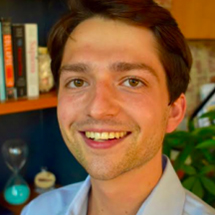Did you know that 56.7 percent of matriculating medical students this year decided by the time they finished high school that they were already set on pursuing a career in medicine? 22.8 percent of students knew a career in medicine was right for them even before they started high school. If you tack on the students who catch the pre-med bug during their first two years of college, then a whopping 78.6 percent of students in the 2020 entering class were already dead set on applying to medical school before their junior year of college..
Why then, do less than half of these students decide to apply right away? If students are dreaming of applying to medical school younger than ever, why are they waiting longer and longer to actually apply?
The bottom line is that more students every year decide to take advantage of a gap year. In the 2020 cycle, two-thirds of successful applicants took at least one gap year. Why? Maybe applicants think that medical school admissions have gotten more competitive, and are increasingly using gap years to improve their applications. We all know the application process is rigorous, perhaps most find it too difficult to balance the MCAT, essays, gathering letters of recommendation, extracurriculars, and a college-level course load. Others might want more clinical experience, while some may just want some personal time to decompress.
There are plenty of reasons why an applicant might want to take a gap year, and should take a gap year. For some applicants, the reasons are strategic and career-minded while for others the reasons are highly personal. The truth is every applicant stands to gain from a meaningful gap year. Here, we’ll take a look at the top 5 ways med school applicants spend their gap years according to the AAMC 2020 Matriculating Student Questionnaire (MSQ) Summary Report:
1. Working another career (48.5%)
Of all students who took a gap year, just under half spent it working another career. Often, this means working elsewhere in clinical medicine—for example as a medical assistant, a medical scribe, a certified nursing assistant, a paramedic, a physical therapist, or a radiology technologist. Some gain industry experience before applying. I’ve met successful applicants who previously worked at tech companies, engineering firms, pharmaceutical companies, or contract research organizations. Others work in nonprofit sectors or for community health organizations as educators or social workers. All said, there is a huge variety in the types of places people work during their gap year—including academia, industry, and government settings—and a huge variety of jobs, each of which develops a particular skill set. Applicants can benefit by emphasizing these unique skills and experience to medical schools.
2. Working/volunteering in research (47.8%)
Working in research is a very popular, and very effective, way to spend a gap year. Many applicants work as clinical research assistants to gain both research and clinical experience. Even more commonly, gap-year applicants work as laboratory research assistants at universities, hospitals, government agencies, or companies. This can help applicants who are interested in applying to research-focused MD programs, or to MD/PhD programs. The NIH Postbac IRTA program, for example, is a very popular gap year destination for a lot of successful MD/PhD applicants.
3. Working to improve finances (39.8%)
Students working full-time can earn quite a handsome salary. Medical school is wildly expensive, and the AAMC gives advice on budgeting and on how to manage student loans during gap years. Part of the AAMC’s advice is to pay down existing debt and generate savings to try and minimize the loans you’ll likely need to take out to pay for medical school.
4. Pursuing graduate studies (23.2%)
Nearly a quarter of successful applicants decided to pursue a master’s degree, PhD, or other graduate studies. The advanced coursework and additional research experience can help gap-year students make their applications stand out.
5. Helping fulfill family obligations (21.8%)
1 in 5 successful applicants spent their gap year stepping up to help fulfill family obligations. If you are somebody who needs to be home to help a sick loved one, work a job to supplement family income, or attend to any one of the countless responsibilities that come with family, then you are not alone. Every year, thousands of successful applicants spend their gap-years helping fulfill family obligations. I can hardly think of a more meaningful way to spend a gap year, and it can help convey maturity in an application.
Cambridge Coaching has the most qualified team of medical school writing coaches available anywhere. Our team is composed of MD, MD-PhDs, and professional writers because we understand that the best coach is going to help you produce a dazzling AMCAS essay, as well as a suite of supplementary materials that provides a persuasive, integrated argument for why you belong in medical school.
The challenge of the medical school application process isn’t just due to the workload, either. It has to do with the sheer competitiveness of the system. You can’t take anything for granted; every aspect of your application has to be solid - your GPA, your MCAT, your recommendations, your interviews, your activities, and your personal statement. That’s why we go beyond the usual options and offer coaching that covers the entire application, not just your personal statement. While we are happy to work with clients on a single essay or drafts, we find that we achieve the best results with clients who work with us throughout their application process - from the MCAT through to the admissions deadlines.


Comments